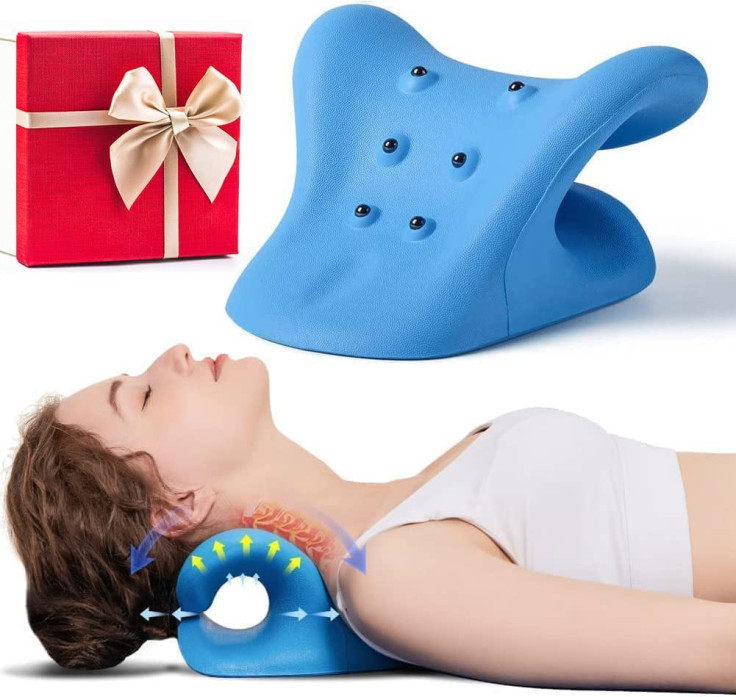Countering Stress-Induced Neck and Shoulder Pain through Relaxation Techniques and Relaxers
Neck and shoulder pain can be a common ailment in today's fast-paced and stress-filled world. The burden of stress, whether physical or emotional, often manifests in these areas, leading to discomfort and a reduced quality of life.
In this article, we explore the profound connection between stress and neck and shoulder pain, and how incorporating relaxation techniques and utilizing neck and shoulder relaxers can effectively alleviate both physical and mental stress, thereby reducing pain and discomfort.
Understanding the Stress-Neck-Shoulder Pain Connection
Stress, in its various forms, directly contributes to muscle tension and pain in the neck and shoulder regions. When the body experiences stress, it releases cortisol, a stress hormone that can lead to increased muscle tension. This prolonged release of cortisol keeps the muscles in a heightened state of tension, resulting in persistent muscle tightness and discomfort.
Further exacerbating pain and discomfort, stress also causes individuals to adopt poor postures and engage in habits like clenching the jaw or hunching the shoulders. These actions strain the muscles in the neck and shoulders, leading to additional discomfort and muscle imbalances.
However, if stress levels are properly managed and incorporated with relaxation techniques like deep breathing, meditation, and the use of neck and shoulder relaxers, a person's physical manifestations of stress can be alleviated and they can feel more relaxed.
With that, try these powerful relaxation methods designed to reduce your stress:
Deep Breathing:
Controlled deep breathing exercises can activate the body's relaxation response, helping to reduce stress and ease muscle tension in the neck and shoulders. By focusing on slow, deep breaths, you can relax and relieve pain.
Meditation:
Regular meditation practice can greatly lower stress levels and improve general well being. You may be able to improve your self-awareness, ease tension in the muscles, and lessen pain in the neck and shoulders by setting aside a small amount of time each day to calm your mind.
Progressive Muscle Relaxation:
This technique involves sequentially tensing and relaxing different muscle groups throughout the body. You can encourage relaxation and reduce pain in the neck and shoulders brought on by stress by intentionally relaxing tight muscles.
Yoga and Stretching:
Engaging in gentle yoga poses and targeted stretches can improve flexibility, release tension, and promote relaxation in the neck and shoulder muscles. Some practices such as Cat-Cow, Child's Pose, and Neck Rolls can be particularly beneficial.
Incorporating these powerful relaxation methods into your daily routine can yield remarkable results in your quest to reduce stress and find relief. Who knows? By exploring these techniques, you may open the door to a world of tranquility and well-being.
The Role of Neck and Shoulder Relaxers in Stress Relief
Neck and shoulder relaxers are specialized devices designed to provide support, relieve muscle tension, and promote relaxation in the targeted areas. These devices often feature ergonomic designs, such as contoured shapes and adjustable settings, which allow individuals to customize their experience for optimal comfort and stress relief.

The following are just a few of the many advantages that neck and shoulder relaxers offer, which may be exactly what you need:
Muscle Tension Relief:
Neck and shoulder relaxers are designed to cradle and support the neck and shoulders, helping to release muscle tension and reduce pain caused by stress-related tightness.
Improved Circulation:
By promoting proper alignment and relieving pressure on blood vessels, neck and shoulder relaxers can enhance blood circulation, which is crucial for reducing inflammation and facilitating healing.
Posture Correction:
Many neck and shoulder relaxers encourage correct posture, which can alleviate stress on the muscles and reduce the risk of chronic pain associated with poor alignment.
Stress can have a profound impact on our physical and mental well-being, often leading to neck and shoulder pain. By incorporating relaxation techniques such as deep breathing, meditation, and progressive muscle relaxation, individuals can effectively manage stress levels and reduce associated muscle tension.
Moreover, utilizing neck and shoulder relaxers can provide targeted support and promote relaxation in these specific areas. By adopting a holistic approach that combines relaxation techniques and the use of appropriate tools, individuals can effectively combat stress-related neck and shoulder pain, leading to improved overall well-being and a better quality of life.



























